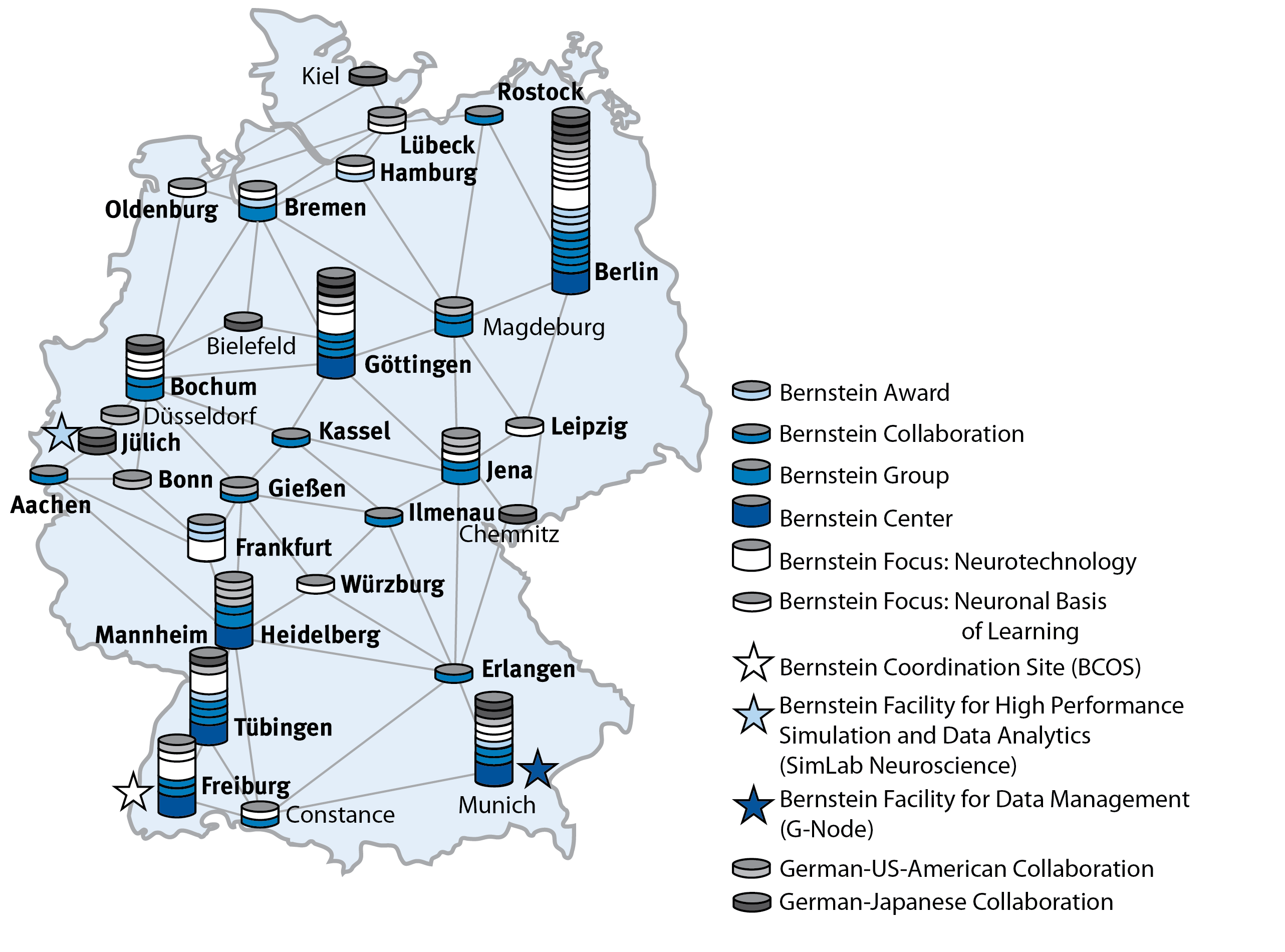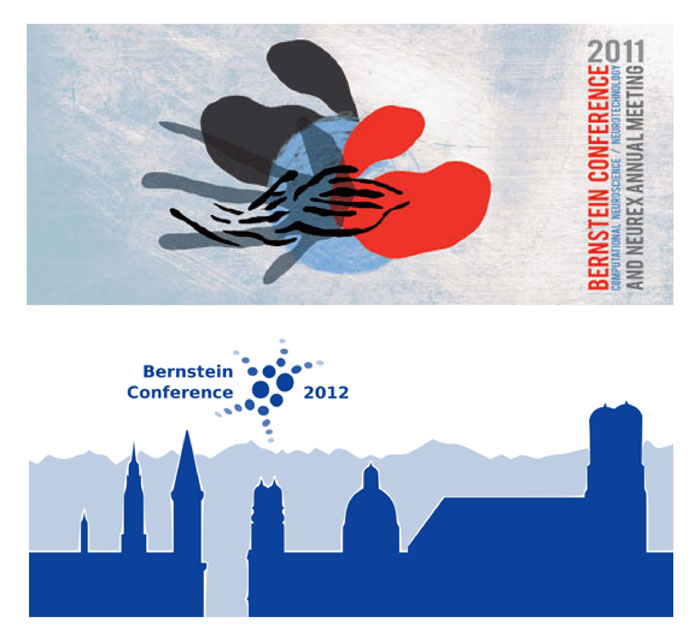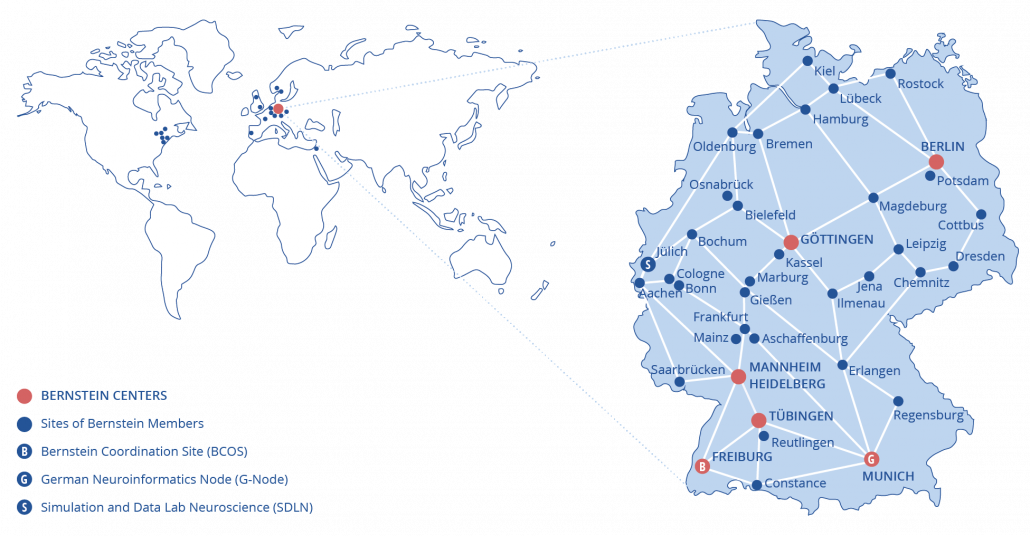Looking back
The Bernstein Network Computational Neuroscience is based on a unique, large-scale funding initiative of the German Federal Ministry of Education and Research (BMBF). It was founded in 2004 with the aim of establishing central structures to join regional capacities in the field of computational neuroscience, interconnecting and further developing them in a sustainable manner.

Funding line with foresight
At the beginning of the 21st century, research into fundamental neuronal processes had made great progress and was steadily gaining momentum. The question of how the human brain works governed the neurosciences; this topic gained importance in a scientific and social context, in particular with regard to medical diagnostics and therapy. In order to remain internationally competitive as a research location and to be able to shape the scientific discourses of the future, the Bernstein Network funding initiative was created.
Projects and collaborations funded in the course of this initiative were therefore set up across disciplines. Traditionally, Bernstein research always linked experimental and theoretical research groups. Over the course of a decade, a nationwide research network was established in Germany under the name “National Bernstein Network Computational Neuroscience” (NNCN).


Bernstein Centers
Bernstein Centers still constitute the core of the network. They unite different scientific expertise at one location each and are shaping international cutting-edge research in Computational Neuroscience. Beside the centers, other Bernstein funding lines, which specifically addressed young scientists or specifically promoted a scientific focus, helped the network to expand not only in terms of locations, but even more so in terms of research methods and topics (see historical map from 2015).
Bernstein Conference
One of the most sustainable developments of Bernstein funding is the Bernstein Conference. Launched in 2005 as the ‘Bernstein Symposium’, the annual scientific meeting grew in size and audience and has become the international Bernstein Conference. Today, it is one of most reputable international conferences in this field worldwide.

Growing further
Since the end of BMBF funding, many centers and research groups have been institutionalized. Computational Neuroscience is now firmly anchored in the German research landscape – with numerous chairs, with collaborations in Germany and abroad, and with a broad range of Master’s and PhD programs.
The Bernstein Network has also gained members internationally. Since 2016, it is a kind of scientific society open to scientists of all career stages who conduct research in the field of computational neuroscience or in related disciplines.







